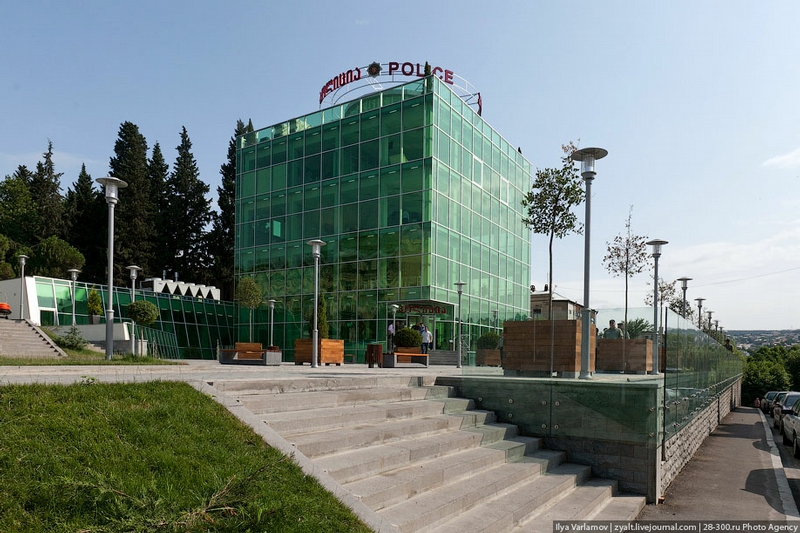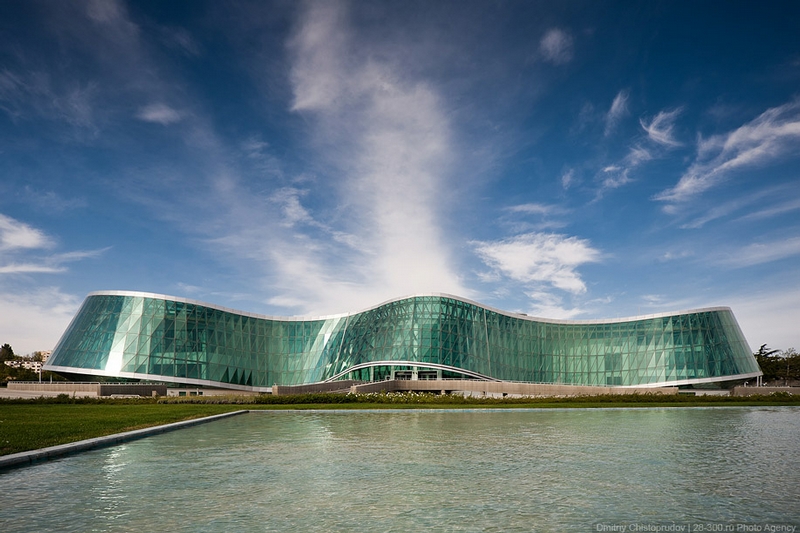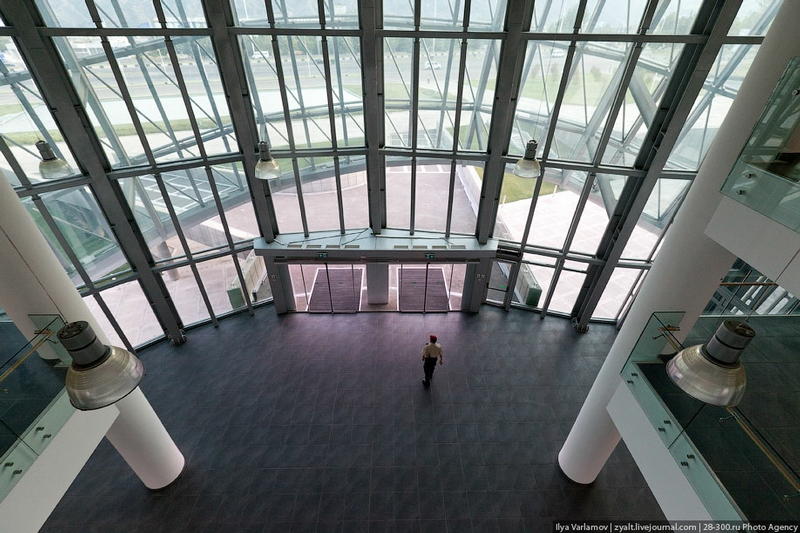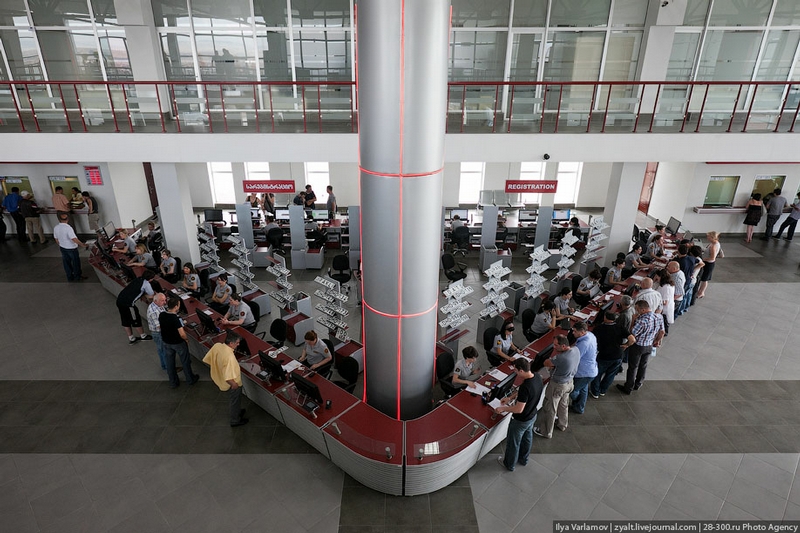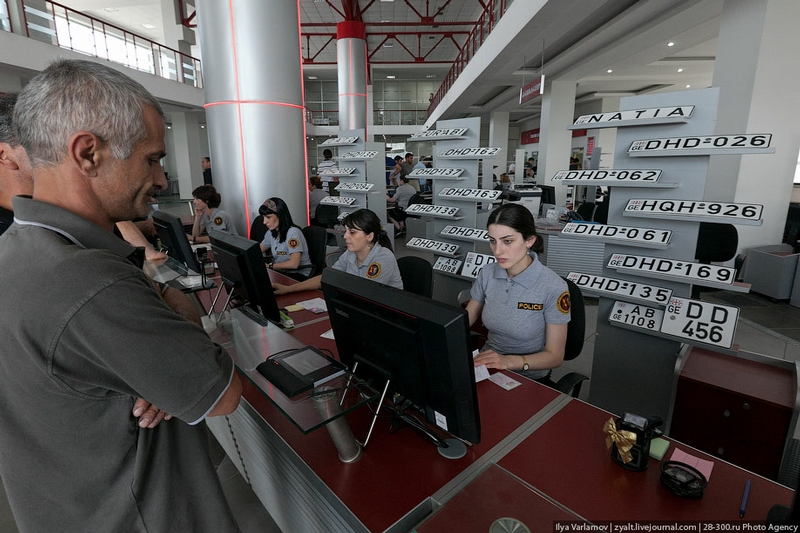After Mubarak's ouster, police reform became a priority in the eyes of most Egyptians, but due to political uncertainty and the incompetence of The Supreme Council of the Armed Forces (SCAF), so far the changes that occured within the ministry of interior has been cosmetic. The fact that the police still operates under the Egyptian emergency law, which has been in effect since Anwar Sadat's assassination and gives the police the ability to imprison any suspects without proper evidence or a trial, is a big concern. Some argue that it is impossible to root out corruption and brutality completely from the Ministry of Interior, and that by doing so there might be a risk of completely losing all sense of security, something that many Egyptians would rather avoid.
States of the former Soviet Union faced a similar problem with their polices forces after the fall of the USSR, and perhaps the most impressive and successful example of police reform took place in Georgia. Of course, it didn't hurt that they now have an elected president, Mikheil Saakashvili, who is Western educated and committed to nation-building and consolidation of liberal democracy.
The first thing they did was to form a new normative base for the ministry of interior according to the principles of international law and human rights protection. Fighting corruption was the priority of the ministry and accordingly a new structural unit was formed. The main aim of this unit is to expose the crimes conducted by state officials, including the representatives of their own unit. In 2005, 120 high-rank state officials are detained and arrested convicted in taking bribes. The Ministry paid special attention to protecting human rights; so it created the Human Rights Protection and Monitoring Main Division, which checks the record and the health condition of suspects, held in temporary detention cells. Since then no fact of mistreatment of prisoners has been reported in the temporary detention cells, which for decades have been a place of torture. The leadership of the Ministry keeps under strict control every violation of human rights by the police officers. After introducing human rights protection mechanism in the Ministry of Internal Affairs many police officers have been penalized for torture and other ill-treatment related crimes. In particular, 4 police officers were arrested, 13 were dismissed from work and 113 were put under investigation for mistreating detainees.
Of course, there can be no reform if the officers themselves weren't committed to reform. Recognizing the necessity of creation of professional and educated staff has attached special attention to the reform of police and security academies. The latter was liquidated and the academy of police was equipped with the newest devices and literature.The system of training and recruiting of police absolutely changed. Starting September 1st, 2005 the MIA together with the Organization for Security and Co-operation in Europe (OSCE) and other donors began realization of the projects of assistance to the Georgian police.
As a result of reforms, 87% of Georgian people have trust in the police (Only the Orthodox Church supasses that number). For comparison, the president's administration gets 57%, the rest of the government 56%. In the past the noted indicator was below 10%. Now a Georgian police officer receives a salary of $ 500-700 (which is higher than the national average), doesn’t take bribes, is polite and punctual.
Stephen Sestanovich, an influential Russia expert at the Council on Foreign Relations wrote on the merits of Georgia’s police transformation and advised Russian President Dmitry Medvedev to follow suit. “Only one political leader in any post-Soviet state has ever attempted this kind of institutional upheaval, and the comparison is an ironic one for Medvedev. For that leader is … Mikheil Saakashvili of Georgia, who soon after becoming president in 2004 fired more than 80% of the country’s police officers…But however awkward the parallel may be, there are lessons in it for Medvedev. Saakashvili’s reform succeeded precisely because it was so radical.”
Below are pictures of several police buildings in Georgia. All new police stations are made as transparent as possible so that any passer-by could see what was happening inside.
Inside the Georgian DMV. It's shocking how organized it is, isn't it?
How can you be a brutal police officer if this is where you dine?
Sources:
1. Success of Georgia's Police Reform Is A Function of Sovereignty, Jamestown Foundation Blog, April 12th, 2010, http://jamestownfoundation.blogspot.com/2010/04/success-of-georgias-police-reform-is.html
2. Reforms at The Ministry of Internal Affairs, Ministry of Internal Affairs of Georgia, http://police.ge/index.php?m=196&lng=eng
3. Georgian Police Before and After Reform, English Russia, August 20th, 2011, http://englishrussia.com/2011/08/20/georgian-police-before-and-after-reform/
